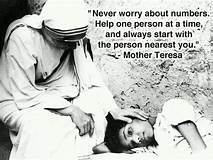Michele Huey's Blog: God, Me, and a Cup of Tea, page 2
September 6, 2024
Cast or Carry?

Cast your burden on the LORD , and he will sustain you. –Psalm 55:22 ESV
I recently read about a 25-year-old Army veteran suffering from degenerative arthritis.
“Arthritis is supposed to happen when you get old,” he told a Seattle Times reporter. “What’s it going to be like when I’m 50 or 60?”
The arthritis has caused painful bone spurs in the vertebrae in his neck and can be traced to carrying 70 to 80 pounds of equipment when he served in Iraq.
The human body is just not made to lift and carry heavy loads. Even with training, you can only carry so much.
Likewise, the human spirit can only carry so much for so long.
Burdens. Physical, mental, emotional, spiritual. We all have to deal with them. It comes with living in this world.
How do we deal with burdens?
According to my Bible, we either carry them or cast them.
Take Moses, for example. He carried the burden of leading the contrary, complaining people of Israel from Egypt to the Promised Land.
“You lay the burden of all these people on me,” he said to God at one point.
So God told him to select 70 men from the elders. “I will take some of the Spirit that is on you and put it on them, and they shall bear the burden of the people with you, so that you may not bear it yourself alone” (Numbers 11:17).
We are not meant to bear our burdens alone.
“Bear one another’s burdens,” God’s Word instructs us, “and so fulfill the law of Christ” (Galatians 6:2).
Isn’t it so much easier when even one person comes alongside us and helps us? The thing about helping others is that when we get our minds off our own burdens and help someone else with theirs, ours don’t seem to be as heavy.
And then there’s Jesus. “Come to me,” He says, “all of you who are weary and carry heavy burdens, and I will give you rest” (Matthew 11:28).
How do we give Jesus our burdens to carry?
We cast them on Him.
“Cast your burden on the Lord,” David tells us, “and he will sustain you” (Psalm 55:22).
And if anyone had burdens to bear, it was him. Anointed king over Israel, David spent years in the wilderness, hiding in caves, fleeing from the murderous King Saul. And when he did become king, his own son attempted to usurp the throne. Yet read the psalms of David, and you’ll see he learned to cast his burdens on the Lord.
Peter tells us to “cast all your anxieties (cares, worries) on Him because He cares for you” (1 Peter 5:7).
How do you cast your worries on God, give your burden to Jesus to carry?
First, refuse to allow your mind to dwell on your anxieties. Acknowledge them, don’t deny them, and release them through prayer (see Philippians 4:6–7). Imagine them soaring up to heaven, where God will take care of them, in His way and in His time.
Replace your worried thoughts with thoughts that are true, noble, right, pure, lovely, admirable, excellent, praiseworthy (Philippians 4:8).
Celebrate the good things in your life. Keep a gratitude journal and write in it every day. And rejoice!
I’m still working on learning how to cast my cares on God, completely.
What burdens do you need to release to Him?
Help me, Lord, to cast all my care on You every moment of every day. Show me someone who needs help carrying their burden. Amen.
Read and meditate on Matthew 11:28–29.
© 2018 Michele Huey. All rights reserved.
August 31, 2024
Wait ‘Til Your Father Gets Home

If you, O LORD, keep a record of sins, who could stand? But with you there is forgiveness. Psalm 130:3–4 NIV
“Wait ’til your father gets home” was not a threat I was able to use on my children. Their father, you see, was—and still is—a softy. I was the bad guy who doled out punishment and discipline.
But there was one time I was sure this easygoing husband of mine would crack and lose his temper with an errant, strong-willed, rebellious child.
One evening when my daughter was in high school, I’d taken her to the mall to do some school shopping. She’d just about finished when my aching feet drove me to the car to wait while she picked up some makeup. I waited. And waited. And waited. The mall was closing down and still no daughter. Where was she?
I returned to the store to find out. Well, she’d picked up some makeup, all right—and tried to get out of the store without paying.
I was beyond furious. How could she do something like this? How could she do this to me? I mean, after all, I was a Sunday school teacher and Bible club teacher, choir director, Christian writer. Wasn’t I supposed to have perfect Christian children? What would people say? What would they think of me? I’ll never forgive her for this! I vowed silently as I drove home, shaking with rage.
“When we get home,” I hissed, “you will tell your father what you’ve done.”
I sent her in ahead of me so I could try to calm down and give her time to tell him without me there. But when I walked in, the scene that greeted me was not what I’d had in mind. There, curled up in her father’s lap, was our remorseful child.
I was stunned. How could he open his arms to her after what she’d done? How could he forgive her just like that? At that moment I don’t know who I was madder at—her or him.
That was more than twenty years ago. Since then, our daughter has grown up to be quite the woman. While fulfilling her roles as wife and mother, she earned her teaching degree as a full-time student with close to a 4.0 GPA. Her college recognized her with its “Heart of Gold” award for her work with a support group for parents of autistic children. She’s now an awesome high school math teacher who asks to work with students who struggle with learning math because she, too, found math difficult when she was in high school.
It took me years before I recognized what I really saw that night when I walked in the house: a perfect picture of God’s unconditional love for us.
Thank You, Abba Father, that we can curl up in Your lap any time we need forgiveness. Amen.
Read and reflect on Luke 15:11–32.
From God, Me, & a Cup of Tea for the Seasons © 2018 Michele Huey. All rights reserved. Used with permission.
August 23, 2024
This Little Light of Mine

… let your light shine … – Jesus, as quoted in Matthew 5:16 NIV
I remember the moment clearly. A spanking new student teacher, I stood in front of a classroom for the first time. Perhaps I was a bit nervous. I don’t remember. What I do remember is, at that moment, a light went on inside me—and has never gone out.
I’d found my calling—the purpose for which I was created—and joy flooded my soul.
The road to that moment wasn’t easy. Growing up in the shadow of a gifted and popular older sister, I struggled with self-confidence and wormed my way through an identity crisis before the term was even coined. It didn’t help that I looked and sounded like my older sister Judy (I didn’t think so, but everyone else did).
In school, teachers wondered why I didn’t get the grades Judy did. And I wondered why my classmates didn’t like me as much her classmates liked her. Mine mockingly called me “Miss Popularity.” When we got older and the boys started coming around—not for me, of course—I found it to my advantage that our voices sounded alike over the phone.
It wasn’t until college—and nearly a hundred miles from my hometown, where no one knew Judy existed—that I finally found myself. I didn’t have to bask in anyone else’s light. I was free to shine my own.
But old habits die hard. In the let’s-mock-Michele years, I’d learned it was better to hide in a corner than risk attention if I let my light shine too brightly. People have a way of putting you in what they think is your place—and it isn’t to outshine them. I found that if I was too good at what I did, people would get envious and not like me. And I wanted to be liked. Besides, I thought hiding in a corner, not letting my light shine, was being humble.
Is that why God created me? Or you? To hide in a corner? Has He not given each person at least a seed of talent that we are to develop and use for Him (Matthew 25:14–30)? And hasn’t He given each of us a special place in His kingdom? A unique job to do? And hasn’t He given us what we need to accomplish that job? (1 Corinthians 12:7; Ephesians 4:7-13)
“You are the light of the world,” He said.
Wait a minute—isn’t Jesus the Light of the World? Yes, He is. But His physical presence is no longer on this earth. Instead, He shines through each of His followers, who are to take His light to a world where moral decay and selfish lifestyles create an ever-increasing darkness.
We are not to hide the light He has put in us under busyness (the jar/vessel in Luke 8:16 represents work) or beneath idleness (the bed). Nor are we to bury the special abilities He has planted in us.
So don’t be afraid to let your light shine, Child of God. That’s why He created you.
Dear God, let Your light shine in and through me. Amen.
Read and reflect on Matthew 5:14–16.
From God, Me, & a Cup of Tea, Vol. 3, © 2019 Michele Huey. All rights reserved.
August 16, 2024
The Money Pit
 Daniel McGinnis, John Smith and Anthony Vaughan begin digging in 1795.
Daniel McGinnis, John Smith and Anthony Vaughan begin digging in 1795.“The kingdom of heaven is like treasure hidden in a field.” –Jesus, as quoted in Matthew 13:44 NIV
One summer day in 1795, young Daniel McGinnis found what appeared to be a depression in the ground. The teenager, who lived on a small island off the coast of Nova Scotia called Oak Island, knew the area was reputed to have been frequented by pirates. Oak Island was one of three hundred small isles in the Mahone Bay, perfect for hiding pilfered treasures. So Daniel returned the next day with two of his friends and started digging.
He never found anything. What he did do, though, was spark a treasure hunt that spanned two hundred years, cost millions of dollars, and claimed half a dozen lives, including a daredevil motorcyclist and his eighteen-year-old son in 1959.
Excavators, digging and drilling to nearly two hundred feet, discovered charcoal, putty, spruce platforms, oak chests, layers of wood and iron, coconut fibers, parchment, loose pieces of metal, a cement vault, a human hand, a mysterious inscription on a stone, a flood tunnel, booby traps—but no treasure.
 Money Pit on Oak Island
Money Pit on Oak IslandWhat really lies at the bottom of what’s called the Money Pit? Treasure buried by Captain Kidd, who used the area for R & R and to repair his ships? The original works of Shakespeare or Sir Francis Bacon? The crown jewels of France, which vanished four years before McGinnis stumbled onto the site? The long-lost Holy Grail? Or is the Money Pit nothing more than an old ammo dump?
No one knows. But who can resist the lure of buried treasure? Note the popularity of films such as National Treasure and Pirates of the Caribbean. Why do such stories appeal to us? Perhaps because we all harbor a secret dream that we will find a treasure that will make us rich beyond our wildest dreams. What wouldn’t we give for a chance at it?
That’s why Jesus used this analogy in describing the kingdom of heaven.
“The kingdom of heaven,” He said, “is like treasure hidden in a field.”
Since there were no banks in the first century, it wasn’t uncommon to hide treasure in the ground. If the person who buried it died without disclosing the whereabouts of his cache, it was finders, keepers.
“When a man found it,” Jesus continued, “he hid it again, and then went and sold all he had and bought that field.”
That’s how valuable the kingdom of heaven is. The late missionary Jim Elliot understood this.
“He is no fool who gives that which he cannot keep to gain that which he cannot lose,” he once said. Elliot was one of five missionaries murdered by the Auca Indians in 1956.
Mother Teresa also understood this, as did Hudson Taylor. And William Tyndale. And many others like them who gave all they had in order to serve the King. They knew that what they relinquished was minuscule compared to what they received—the kingdom of heaven. They gave that which they could not keep to gain that which they could not lose.
Now, that doesn’t mean we have to run off and become missionaries when we submit to the rule of King Jesus. But it does mean that our priorities change. Our perspective changes. What we once thought was so important no longer is.
It means that, like Paul, we say, “Everything else is worthless when compared with the priceless gain of knowing Christ Jesus my Lord. I have discarded everything else, counting it all as garbage, so that I may have Christ” (Philippians 3:8 NLT).
What about you—where is your treasure?
Dear God, I still cling to things that moth and rust can destroy, and thieves can steal. Remind me daily of where my real treasure lies. Amen.
Read and reflect on Matthew 13:44; Philippians 3:7–8.
From God, Me, & a Cup of Tea, Vol. 3 © 2019 Michele Huey. All rights reserved. Used with permission.
Interest piqued? Find out more about The Money Pit here: “Oak Island Money Pit: The Last Great Unsolved Mystery“
August 9, 2024
Tales of Tares

“Let both grow together until the harvest.” – Jesus, as quoted in Matthew 13:30 NIV
Oy, what a world we live in! Just booting up my computer for the day’s work can be depressing. I check my email first. Thank heavens for spam filters, which separate the wheat from the chaff, so to speak. I have it set on the highest setting, but still some garbage sneaks through. Then there are the forwards with the dire warnings of bad luck if I don’t pass them on. Phooey on them all. Once in a blue moon I’ll read one. One day, though, I did.
It was from my brother about jury duty. Seems that some shysters are calling folks, posing as court officials and telling them there’s a warrant out for their arrest because they didn’t report for jury duty. When the innocent party protests that they never even received a summons, the con on the other end tells them he’ll check into it, just give him your Social Security number and date of birth. Sometimes they even ask for a credit card number. Give them the information they want, and the nightmare of identity theft follows. (Check the validity of scams online at snopes.com.)
Then there are headlines, equally depressing. While most of them are about Covid-19 (IMO most are political propaganda to manipulate the public’s opinion of the current administration), once in awhile there’s some real news.
Like the article about the hype in Boston back in 2007. City officials were livid—the article’s word, not mine—over an advertising campaign for a late-night television program. Seems that the broadcasting company put up electronic signs on bridges and other obvious places—thirty-eight in all—of a blinking cartoon character giving passersby an obscene gesture. This led to shutting down highways, bridges, and a section of the Charles River, sending in the bomb squad and costing the city a half a million dollars.
“Commerce was disrupted, transportation routes were paralyzed, residents were stranded and relatives across the nation were in fear for their loved ones in the city of Boston,” said the Boston DA.
The mayor called the ploy an outrageous marketing scheme fueled by corporate greed. Well, yeah, isn’t greed what makes the world go ’round these days?
And, speaking of sickos, you better make sure you have a good antivirus program installed and don’t ever, ever let the subscription run out. Oh, and don’t forget the firewalls to prevent hackers from breaking into your computer files and stealing sensitive financial information.
Then there are the block lists to prevent corporate greed from giving you indigestion at dinnertime, the filth you have to wade through to find a decent program on television, the obscene and offensive t-shirts and bumper stickers. It’s enough to make me want to head for the hills and become a mountain woman.

Jesus warned there’d be times like this. Evil, sad to say, is here to stay, and evildoers aren’t going anywhere, either. Jesus called them tares—actually “darnel,” a weed that looked just like the wheat when it first sprouted. Only as the plants matured did the identity of the good seed and the bad seed become evident.
When you look around, Christian, and it seems that the tares are rampant, don’t despair. Instead, rejoice in your hope, be patient in tribulation, and be constant in prayer (Romans 12:12) because, you see, the harvest is coming.
Dear God, sometimes I feel helpless and overwhelmed by the evil in the world around me. Help me to be a sturdy strand of wheat in a field of tares. Amen.

Read and reflect on Matthew 13:24–30, 36–43.
From God, Me, and a Cup of Tea, Vol. 3, © 2019 Michele Huey. All rights reserved.
August 2, 2024
Soil Toil
[image error]mwahl from Pixabay
" data-medium-file="https://godmetea.com/wp-content/uploa..." data-large-file="https://godmetea.com/wp-content/uploa..." tabindex="0" role="button" class="size-full wp-image-2315" src="https://godmetea.com/wp-content/uploa..." alt="" width="640" height="427" srcset="https://godmetea.com/wp-content/uploa... 640w, https://godmetea.com/wp-content/uploa... 150w, https://godmetea.com/wp-content/uploa... 300w, https://godmetea.com/wp-content/uploa... 768w, https://godmetea.com/wp-content/uploa... 1024w, https://godmetea.com/wp-content/uploa... 1280w" sizes="(max-width: 640px) 100vw, 640px" />Today, if you hear his voice, do not harden your hearts. –Psalm 95:7–8 NIV
Every year when it’s time to plant our garden, my husband works hard to prepare the soil for the seeds.
First he plows, turning the hardened earth over and under. Then he tills it, breaking up tough clumps of sod and removing the rocks that rise to the surface with the churning—and there are buckets full still, after forty years. Then he works lime and fertilizer in the loose soil with the tiller—and, of course, removes more rocks.
Only when the soil is loose and porous, and boosted with nutrients necessary for plant growth does he drop in the seeds.
Even then his soil toil is far from over. Throughout the growing season, he must keep working it, tilling it to keep it loose and soft, plucking those endless rocks, pulling weeds, and periodically adding more lime and fertilizer.
After every hard rain, the soil hardens again, more rocks appear, and he must hoe around the growing plants so the nutrients they need to grow could filter through to the roots. And, of course, pick rocks.
Even after the harvest the work isn’t done. Plowing the whole thing under allows the decaying plants to add more nutrients to the soil over the winter.
Then, the following spring, he starts all over. The ground always needs work.
Just like our souls. We need a lot of work, too—over and over. The work is never done on this earth.
It all starts with a hardened heart that cannot accept the seed. To get our attention, God often turns our lives upside-down, breaking up tough clumps of stubbornness and rebellion. Then, to soften our hearts even more, He keeps things churned up until we are submissive and workable. Rocks of selfishness and willfulness, which crop up daily, must be removed. Storms of life also tend to bring them to the surface.
But the seed needs nutrition to grow, and too many idle years result in a depleted soul, fallow and barren. To remedy this, the lime of prayer and the fertilizer of fellowship with more mature Christians must be applied—by the bagful.
But we’re not ready to produce a harvest yet, are we? Those weeds of worldliness must be carefully twisted out of our hearts, where their roots reach deep, leeching the nutrients and choking the tendrils of spiritual life.
Only after all this toil—plowing, tilling, hoeing, rock plucking, fertilizing, watering, weeding—can our soil-soul support growth and eventually produce a harvest.
But there is never, really, any one type of soil, is there? Perhaps that’s why I’ve always had trouble answering the question, “What kind of soil are you?”
I am not one type of soil, you see. I am all of them.
Dear God, thank You that soil can be changed. Thank You for changing me—little by little, rock by rock, weed by weed. Amen.
Read and reflect on Matthew 13:3–9, 18–23.
From God, Me, and a Cup of Tea, Vol. 3, © 2019 Michele Huey. All rights reserved.
July 26, 2024
Lost Lamb, Panicked Parent
“In the same way, heaven will be happier over one lost sinner who returns to God than over ninety-nine others who are righteous and haven’t strayed away!” –Jesus, as quoted in Luke 15:7 NLT
My two-year-old son was missing. He’d climbed the back of the sofa in the downstairs family room and slipped out of an unscreened ground floor window while I washed windows upstairs and his older brother and sister, who were supposed to keep an eye on him, watched cartoons.
We lived at the edge of a small rural village on what used to be the family farm. Where could he be on this warm, spring afternoon? Traipsing in the acres of woods and overgrown fields? Climbing the high wall, a steep, dangerous cliff left from open-pit mining years ago? Exploring the barn filled with suffocating hay bales or the wagon shed with all its enticing tools and machines? I imagined a small body floating on the pond fifty yards away and felt panic rise like bile in my throat.
The world can be a dangerous place for a curious toddler. Fear clutched my heart and squeezed hard. I called around the neighborhood while Todd and Jaime began searching. A neighbor boy hopped on his four-wheeler.
I can’t remember how long we searched. I only remember praying, pleading with God to help us find him safe and sound. We did—between the back doors of his grandmother’s house next door. She wasn’t home, so no one heard his knocking or answered the phone when I called.
What relief and joy flooded me when they brought him through the door! I hugged him and kissed him and hugged him some more.
There’s nothing worse than not knowing where your children are. My children knew the degree of punishment was proportional to the degree of panic.
Unlike us, though, God doesn’t panic when His children wander off. He always knows exactly where they are and goes after them. Not with punishment in mind, but in love and concern. He knows it’s a mean, dangerous world out there.
And He never forces them to return against their will. Instead, He calls to them gently, softly whispering their names so they hear it deep in their souls. He arranges circumstances to get their attention.
Cecil Murphey, in his books The Relentless God and The God Who Pursues, describes his own wandering and how God sought him, found him, and brought him home. My own Uncle Nick woke up in a jail cell after a drinking bout and found the Shepherd waiting for him. He became a Baptist minister who eventually led several family members to a deeper, more meaningful relationship with God.
Sometimes God sends others to bring home His beloved children. My friend Melanie wrote a book called The Apostles He Sends, describing how God sent others to draw her back to her faith after more than three decades of running away.
He never stops caring. He never stops loving us. He never stops seeking us when we stray. So whether you or someone you love is the little lost lamb, be assured that God knows where His lost ones are—and He’s working on bringing them home.
Thank You for never letting me out of Your sight, Father, and thank You for bringing me home. Amen.
Read and reflect on Matthew 18:12–14; Luke 15:3–7.
From God, Me, and a Cup of Tea, Vol. 3, © 2019 Michele Huey. All rights reserved. To use, please contact me @ michelethuey@gmail.com for permission.
July 19, 2024
Lazarus at My Gate

Seek ye first the kingdom of God and His righteousness. —Matthew 6:33 KJV
Global seems to be the latest buzz word. You’ve got to think, speak, and act globally. No more the small-town mindset. Anyone who isn’t sophisticated, well-informed, and technology-savvy just isn’t with it these days.
This global philosophy has infiltrated the Christian ranks too. We’re to pray for the world, for the country, for worldwide missions, for people we don’t know and probably never will. Now, this isn’t bad. Someone needs to pray for world peace and give to missions.
There are those who can handle this information overload. I’m not one of them.
Quite frankly, it depresses me. I’m overwhelmed by prayer lists that grow longer and more disheartening by the day. I feel helpless when I read of a 101-year-old woman on her way to church who’s mugged by an addict who targets elderly women to get his drug money; of children and animals that are tortured and killed; of government officials who are more interested in playing politics, posturing, and pointing fingers than running the country; of misused money that was sent in good faith to alleviate others’ suffering.
Do I really need to know all this? My global prayers seem weak, bumbling, pat, and ineffective.
I keep thinking of the question God asked Moses, “What is that in your hand?” (Exodus 4:2). And then I see the need to focus on what I have in my hand. I’m sensing the need to reach out to people around me who are hurting—something I’ve neglected because I’ve been too focused on the global.
I realize God has been saying, “Look to the Lazarus at your gate.” The older I get, the more people whom I know will be hospitalized, lose loved ones, experience crises. These are the Lazaruses at my gate. Yet I’ve insulated and isolated myself from my immediate world in pursuit of the global.
How many decades did Mother Teresa labor in the ghettos of India unnoticed? Now, this woman didn’t think globally. Yet her words resonate in my soul: “God has not called me to be successful; He has called me to be faithful.”
When we focus too much on the global, we can overlook the people around us—family, neighbors, those we meet at church, in the store, at ballgames and on the street—because we may think ministering to them is too small. But the globe is made up of folks like these, and if we each reached out and touched them, the ripples will be felt in all the world.
Dear God, open my eyes to the Lazarus at my gate today. Amen.
Read and reflect on Luke 16:19–31.
From God, Me, & a Cup of Tea: 101 devotional readings to savor during your time with God © 2017 Michele Huey. All rights reserved.
July 16, 2024
Keeping Score
“Forgive us the wrongs we have done, as we forgive the wrongs that others have done to us.” – Matthew 6:12 TEV
“Lord,” Peter once asked Jesus, “how often should I forgive someone who sins against me? Seven times?”
Peter was being generous. Seven times was going above and beyond the call of duty. According to Jewish teaching, a man was to forgive someone four times. After that, forgiveness wasn’t required.
Jesus’ answer rocked Peter. “No. Seventy times seven!”
That’s a lot of offenses. If you want to take this literally, get a notebook and jot down when someone says or does something to hurt you. Make sure you number the offenses—because when you get to 491, you can justify your unforgiving heart.
Sound ludicrous? Think about it. Don’t we all keep score? Just get into an argument with someone, and out pours a litany of times that person offended you (or you offended them). True forgiveness doesn’t come easy.
I can think of two times in my professional life when I found forgiveness difficult: when I was cheated out of a job and when a father turned a parent-teacher conference into an attack on me.
The first offense took years for me to get past. But eventually I saw that harboring bitterness was destroying me. Although I haven’t forgotten, I don’t dwell on the injustice—that only serves to stir up anger and hurt. Besides, once God’s plan and purpose were revealed, I saw that it was much better than what I’d wanted at the time.
The second offense still smarts. I was explaining my position to the parent, a professing Christian prominent and active in the church, but my words were skillfully twisted and used against me. I can still feel the anger and frustration, the feelings of helplessness and futility.
One time I bruised my arm, but it didn’t turn black and blue right away. As the days went by, though, the bruise turned darker and uglier. The deeper the bruise, someone told me, the longer it takes to come out.
The same with bruises to our hearts (and, okay, our egos). Only time can ease the pain, mellow the sharpness, sweeten the bitterness.
But we have a choice: Dwell on the injustice and the hurt, or “think” and “thank” — think only good things about the one who offended us (Philippians 4:8) and then thank God for the person, for his positive qualities, for the good that God will work out of what we think of as bad (Romans 8:28).
For a long time afterward, I felt a twinge of pain and anger every time I saw this parent. But I refused to dwell on what happened. Instead I thought of the many ways God blessed this man and is using him in His kingdom, and then I thanked Him.
You know what, now I can’t even remember who he was.
That’s the best way to keep score.
Dear God, You have commanded us to forgive. It’s not an option. Help me to forgive others as You have forgiven me. Replace the anger and pain in my heart with Your love. And if I can’t love the person who hurt me, then I give You permission to love them through me. Amen.
Read and reflect on Matthew 18:21–35.
From God, Me, & a Cup of Tea, Vol. 3 © 2019 Michele Huey. All rights reserved.
July 6, 2024
Clean Out the Closet!

When someone becomes a Christian, he becomes a brand new person inside. He is not the same any more. A new life has begun! – 2 Corinthians 5:17 (TLB)
I knew I was overdue to clean out my clothes closet when I tried on three outfits for church one Sunday morning and none of them would do.
My wardrobe included three pairs of polyester slacks that I’d worn nearly every week for 10 years (I exaggerate not) and that were coming apart at the seams, missing buttons at the waist, and were way too baggy since I’d lost some weight. My sweaters were fuzzbally, nearly transparent in places or had shrunk in the wash. Most of my skirts, blouses and dresses were tired and lifeless and looked like I felt. And most everything was way outdated.
Over the years, I’d added a piece or two to my wardrobe here and there, but, instead of removing anything to make room in my four-foot-wide closet, I simply shoved the old stuff back where it was hard to reach. My dresser drawers weren’t much better. I had to iron everything before I wore it.
Finally I decided it was time. No more hanging on to stuff in case I lost weight or in case I’d want to wear it someday. No more “fat” and “skinny” wardrobes.
My tastes were changing, too. Instead of prints (usually flowers), I wanted solids in shades that complimented my coloring and in styles that complimented my body shape.
So after a day-long shopping trip and another day-long closet-cleaning session, I had 50 empty hangers, two empty dresser drawers, a healthy donation for Goodwill, and an equally healthy donation for the garbage man—and a feeling of being set free.
Every time I wear one of my new outfits, I feel like a new woman, lighter and happier than I’ve felt in years. Amazing how hanging on to useless old things can bog us down.
We do the same spiritually, don’t we? Those old sins are hard to let go because we have a hard time believing we are truly forgiven and so we refuse to forget. We won’t forgive ourselves, so we carry around a load of guilt, thinking this is our penance.
Is that what God does? No!
When we asked for His forgiveness and accepted His Son, we were changed inside. Not patched up, like a garment that needs mending. We were born again (John 3:16), given new life—His life in us. We became not fixed-up versions of our old selves, but brand new persons!
We were washed completely clean (1 John 1:9). All our sin-stain was bleached out entirely by the Son, and our hearts are now as white as snow (Isaiah 1:18, Psalm 51:2,7). All the garbage of sin and guilt was flung as far from us as the east is from the west (Psalm 103:12), and God remembers it no more (Jeremiah 31:34).
So why do we? Perhaps because we feel unworthy? But God considered us worthy enough to send His Son to die in our place and open the way to Heaven.
So, Christian, clean out your closet and toss the fuzzbally attitudes, oversized guilt, outdated shame. Don your new clothes—clothes as clean, fresh, and new as a spring morning—clothes that will make you feel like a new person—because, Child of God, you really are.
Create in me a clean heart, O God, and put a new and right spirit within me. Restore to me the joy of my salvation. Amen. (Psalm 51:10,12)
Read and reflect on Matthew 9:14–17.
From God, Me, & a Cup of Tea for the Seasons, © 2018 Michele Huey. All rights reserved.
Image 600-02377761 © Lisa Brdar
God, Me, and a Cup of Tea
- Michele Huey's profile
- 19 followers



